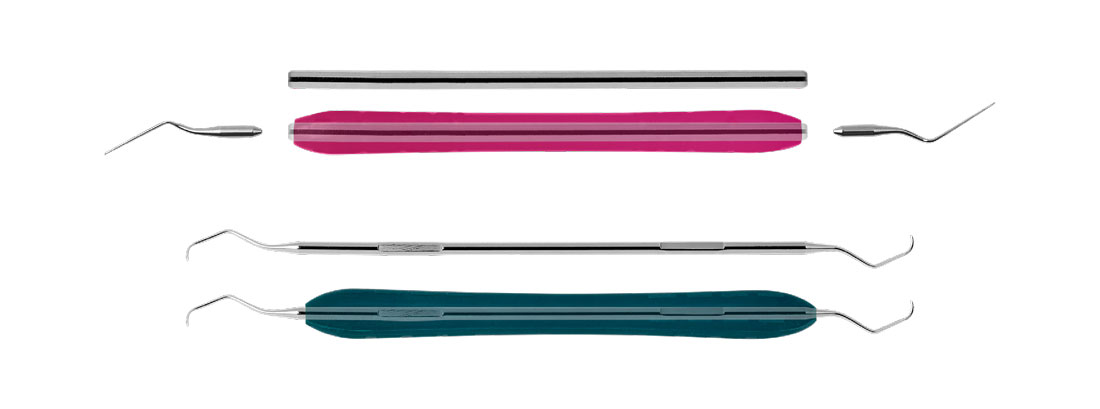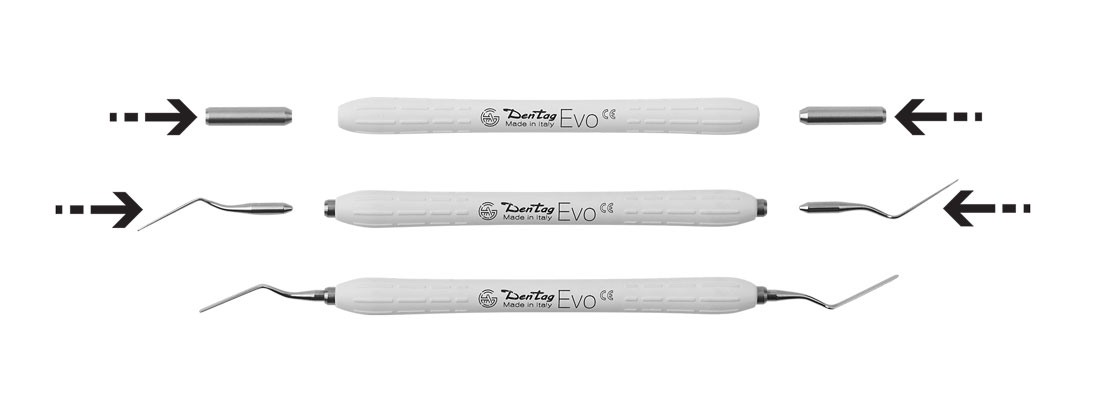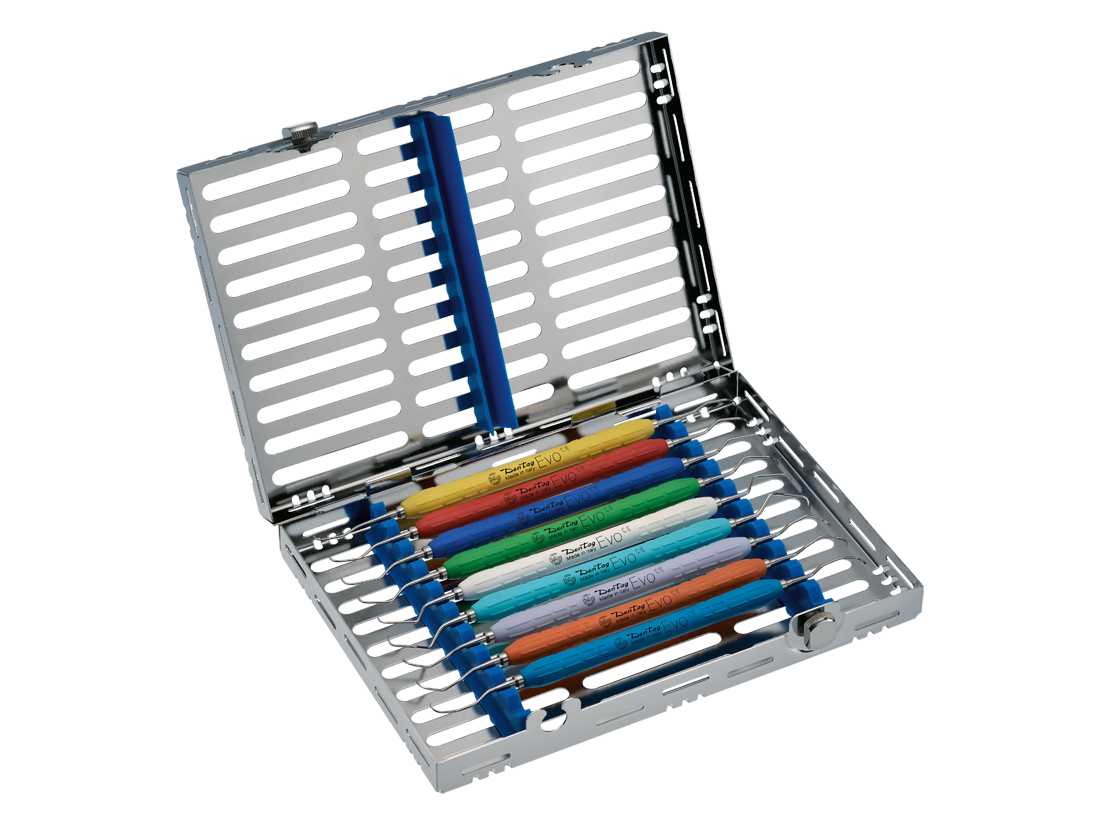Evo
Similar in the body,
totally different in the essence.
We are very attentive to changes and trends in a market that evolves quickly and sometimes abruptly. We constantly receive requests for lighter yet nonetheless reliable instruments, such as stainless-steel ones. Since we cannot change the material used for the tips, to cut down the weight we can only work on the handles. Therefore, we have started production of a completely new series of instruments with light-material handles. Because others did it before us, we firstly focused on analysing the state of the art of existing products in order to capitalize on and, where possible, improve their positive features, and fix any flaws. The outcomes of this analysis led to designing and forging a handle with several new features and enhancements compared to other similar products on the market.



